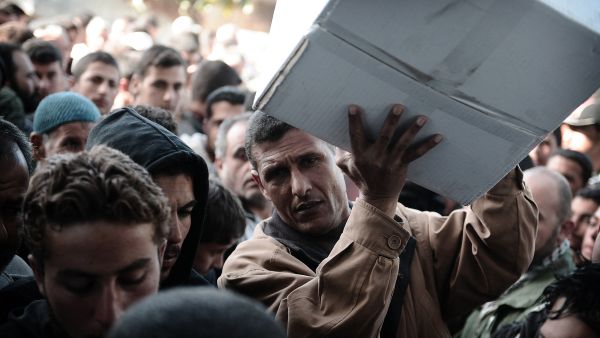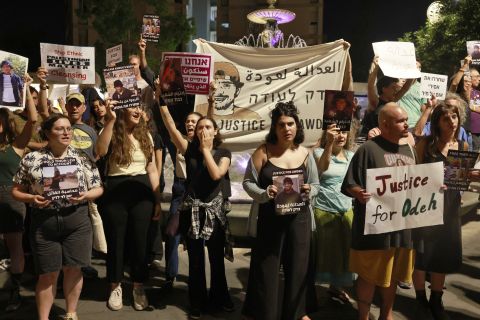ALBAWABA - In an effort to change its reputation internationally and refute reports of a worsening famine in Gaza, Israel has started a concerted media campaign involving American and Israeli influencers.
The campaign coincides with warnings from the UN and other international organizations that over half a million people in the besieged enclave are suffering from catastrophic hunger.
The Israeli government enlisted social media influencers to create videos showcasing piled humanitarian aid at Gaza's border crossings in tandem with the UN's official declaration of famine in Gaza. These videos, which were extensively disseminated on various platforms, especially Twitter (X), sought to present Israel as supporting relief efforts while downplaying widespread famine.
By releasing videos of food products on display in Gaza markets, Israeli media further emphasized this narrative despite the fact that basic necessities are still hard to find or unavailable. The videos' influencers echoed Israel's assertions, calling out international organizations and activists based in Gaza for **"Hamas-driven propaganda" and "spreading lies."
Key Figures and Organized Efforts
One of the participants was American influencer and lawyer Brooke Goldstein, who produced content from the "Gaza Humanitarian Foundation" website that bolstered Israel's claims.
The campaign was reportedly supported by Israeli diplomatic initiatives and intended to offset mounting international criticism of Israel's policies. In an effort to increase pro-Israel sentiment among American youth, Haaretz disclosed last month that the Israeli Foreign Ministry had sponsored American influencer tours as part of campaigns associated with "Make America Great Again" and "America First."
The UN Verifies Gaza's Famine
The campaign coincides with a humanitarian alert that has never been seen before. The Food and Agriculture Organization (FAO), the World Food Programme (WFP), UNICEF, and the World Health Organization (WHO) all confirmed in a joint statement that more than 500,000 people in Gaza are living in famine conditions.
Famine is spreading quickly, and if immediate assistance is not provided, it is predicted to reach Deir al-Balah and Khan Younis by the end of next month, according to the Integrated Food Security Phase Classification (IPC) report.
Criticism and Reaction from the Public
Palestinians were incensed by the videos and referred to the campaign as "Israeli propaganda theater" that aimed to misrepresent the humanitarian situation in Gaza.
Locals noted that while Israel continues to obstruct vital food supplies and postpone aid shipments until they rot in the intense heat at crossing points, the products featured in the videos are luxury goods that are out of reach for the majority of families.
Additionally, activists cautioned that selective footage of sparse aid deliveries runs the risk of deceiving audiences around the world by giving the impression that Gaza is a place of plenty, even though the vast majority of its citizens are starving.










